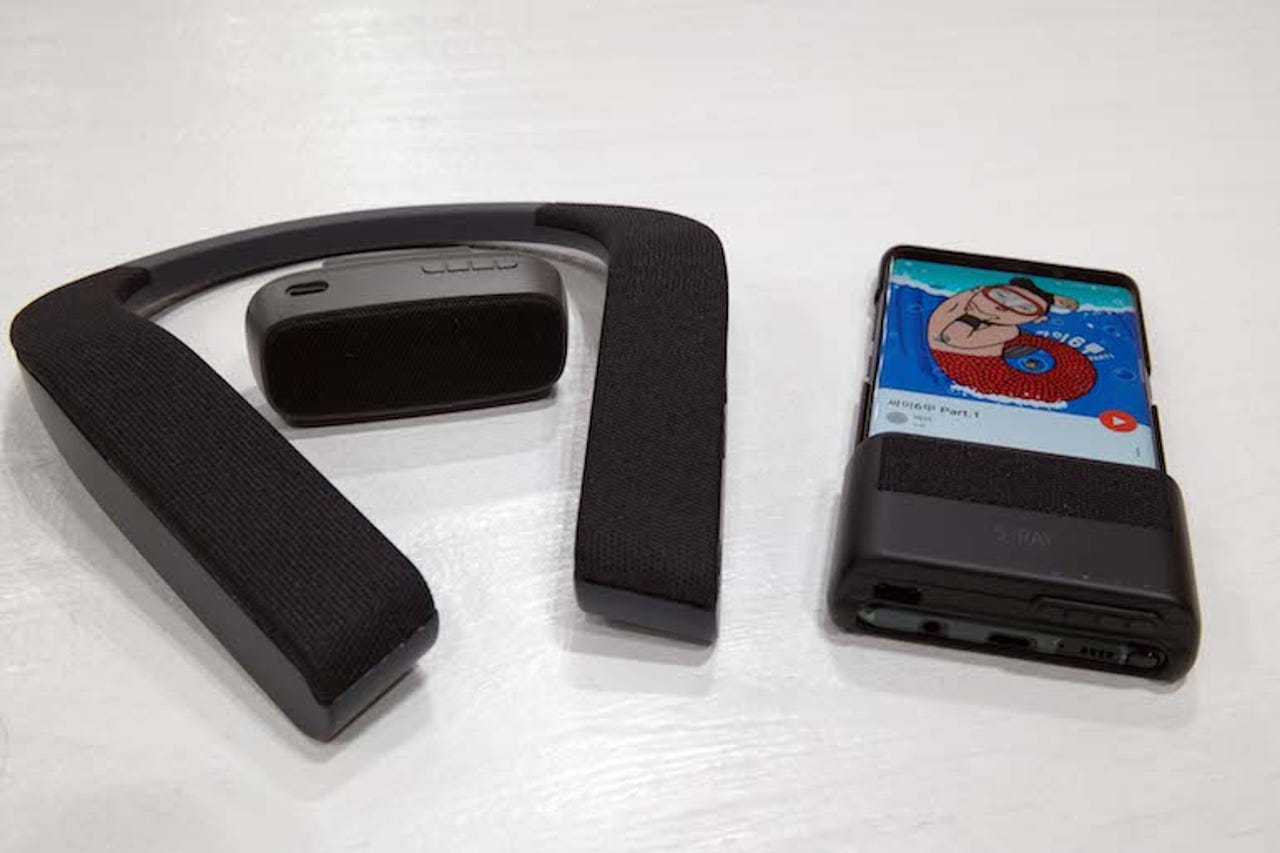Samsung's mini directional speaker will let you listen without bothering people around you


Samsung's S-Ray.
Samsung is showing off three new inhouse projects, including a portable directional speaker and a set of smart glasses for the visually impaired.
Tech Pro Research
The Sound-Ray, also known as the S-Ray, is a portable speaker that provides directional audio so that sounds, such as music, are only heard in one place. It can also allow different sounds -- like descriptions of museum exhibits -- to be played in the same space without the audio blending together.
Samsung said that while existing directional speakers are usually stationary due to their size and price, the small size of the S-Ray -- Samsung's video shows a device about as big as a pebble -- makes it lighter and more portable. The company says that S-Ray helps people avoid having to put on earphones for a long time, which can cause ear pain, and avoids the distraction to others that Bluetooth speakers can cause.
Samsung is also showcasing the Relúmĭno glasses, which are designed to help people with limited vision to see images more clearly when reading a book or viewing an object.
Only 14 percent of visually impaired people are totally blind, and the majority can determine the difference between light and dark. Samsung's glasses -- using a smartphone and Gear VR headset -- provide various options to help the wearer see or read more easily.
The smartphone processes images from videos captured by the camera on the glasses. These processed images are shown on the display of the Relúmĭno glasses, helping the wearer see more clearly; for example, by making the outlines of objects more visible or displaying text in high contrast. According to Samsung, a VR headset isn't ideal for outside operation, so future versions of the device will be as small and convenient as sunglasses.
Meanwhile, GoBreath pairs a device and an app with the aim of helping patients who need to practice deep breathing for faster recovery following surgery. The system teaches wearers basic techniques, such as inhalation, coughing, or deep breathing. It also offers a cloud service to help doctors to monitor their patients' recovery and provide reminders to practice.
The three projects will be shown at the CES electronics show in Las Vegas. C-Labs is Samsung's inhouse incubator, and opened in December 2012, with the aim of encouraging new ideas from Samsung employees.
It also helps employees who have successful C-Lab projects to launch their own startups. Samsung supports the spinoff companies through seed money investment and business consulting to accelerate their growth. Seven start-ups that have been spun off from Samsung C-Lab, including Linkflow, Kitten Planet, lululab, Kidsoft, Mangoslab, Innomdle lab, and analogue plus.
Recent and related coverage
IBM uses deep learning to better detect a leading cause of blindness
In its latest use of cognitive technology to combat eye disease, IBM has developed a simple way to help doctors diagnose diabetic retinopathy.
This telehealth cabin connects qualified doctors with patients all over the world
A French physician's telemedicine booth can bring healthcare to isolated communities and individual businesses.
Read more on Samsung
- Samsung to reveal QLED monitor with Thunderbolt 3 at CES
- Here's what Samsung's latest budget phones may tell us about the Galaxy S9
- Windows 10 Surface rival: Samsung's new Notebook 9 Pen 2-in-1 packs latest i7 chip
- Samsung to launch smart speaker in first half of 2018: Report
- Samsung partners with St Vincent's Hospital for pain management with VR (TechRepublic)
- A foldable Samsung Galaxy phone? Here's why you may want it (CNET)